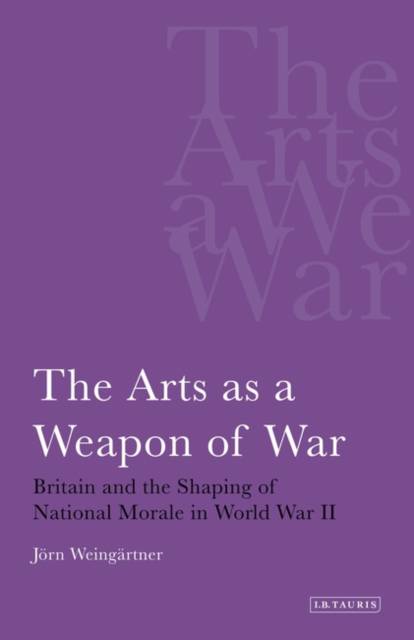
- Afhalen na 1 uur in een winkel met voorraad
- Gratis thuislevering in België vanaf € 30
- Ruim aanbod met 7 miljoen producten
- Afhalen na 1 uur in een winkel met voorraad
- Gratis thuislevering in België vanaf € 30
- Ruim aanbod met 7 miljoen producten
Zoeken
The Arts as a Weapon of War Britain and the Shaping of National Morale in World War II
Britain and the Shaping of National Morale in World War II
Jorn Weingartner
€ 84,95
+ 169 punten
Omschrijving
In 1834, Lord Melbourne spoke the words that epitomised the British government's attitude towards its own involvement in the arts: 'God help the minister that meddles with Art'. However, with the outbreak of World War II, that attitude changed dramatically when 'cultural policy' became a key element of the domestic front. Not only a propaganda tool, it aimed to boost morale and prevent a wartime cultural blackout. "The Arts as a Weapon of War" traces the evolution of this policy from the creation of the Committee for the Encouragement of Music and the Arts, in 1939, to the drafting of the Arts Council's constitution in 1945. From the improvement of the National Gallery to Myra Hess' legendary concerts during the blitz, Jorn Weingartner provides a fascinating account of the powerful policy shift that laid the foundations for the modern relationship between government and the arts.
Specificaties
Betrokkenen
- Auteur(s):
- Uitgeverij:
Inhoud
- Aantal bladzijden:
- 248
- Taal:
- Engels
- Reeks:
Eigenschappen
- Productcode (EAN):
- 9781780760322
- Verschijningsdatum:
- 30/06/2012
- Uitvoering:
- Paperback
- Formaat:
- Trade paperback (VS)
- Afmetingen:
- 137 mm x 211 mm
- Gewicht:
- 317 g

Alleen bij Standaard Boekhandel
+ 169 punten op je klantenkaart van Standaard Boekhandel
Beoordelingen
We publiceren alleen reviews die voldoen aan de voorwaarden voor reviews. Bekijk onze voorwaarden voor reviews.











